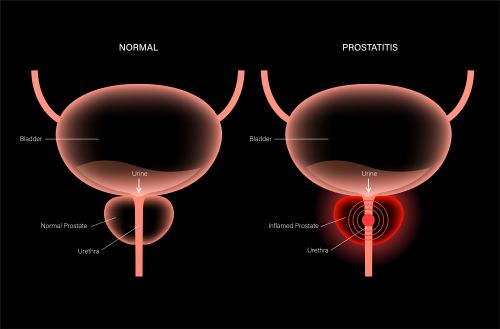Home Remedy Destroys Prostatitis
Prostatitis: Empowering Yourself Through Early Awareness and Ongoing Support
Prostatitis—an inflammation of the prostate gland—can present a complex set of challenges for many men. Beyond the physical symptoms of pelvic discomfort or frequent, urgent urination, the condition can also influence emotional well-being, day-to-day comfort, and overall confidence. While prostatitis may feel isolating, understanding its early signs, exploring available resources, and building a support network can help you move forward with greater clarity and control.
Recognizing Early Indicators
Early awareness can make a significant difference in managing prostatitis. Common signs include pelvic or lower back pain, discomfort during urination, and feelings of pressure around the groin. If these symptoms appear consistently, paying attention—rather than waiting them out—can lead you toward earlier intervention. The sooner you recognize potential issues, the sooner you can seek out medical guidance and personalized treatment options.
The Importance of Professional Evaluation
Although online resources and personal research can be immensely helpful, a healthcare professional’s input is irreplaceable. A visit to a primary care physician or a urologist can clarify the cause of your symptoms, whether they stem from bacterial infection, muscle tension, or other factors. From there, you may be guided toward:
• Targeted Therapies: If bacterial infection is involved, antibiotics may provide relief.
• Pelvic Floor Therapy: For cases related to muscle tension, specialized physical therapists can help alleviate discomfort through guided exercises and relaxation techniques.
• Lifestyle Adjustments: Your doctor may suggest changes in diet, stress management routines, or exercise habits to support long-term prostate health.
Building a Support Network
No one should have to face prostatitis alone. While it might not be the most comfortable topic to discuss, reaching out to loved ones, joining online forums, or finding local support groups can create a community of people who understand what you’re experiencing. Sharing stories, strategies, and encouragement can help diminish feelings of isolation and empower you to stay proactive about your well-being.
Embracing Holistic Approaches
In addition to conventional treatments, many men find complementary approaches valuable in managing prostatitis symptoms. Consider integrating:
• Mindfulness and Relaxation Techniques: Deep breathing exercises, meditation, or progressive muscle relaxation can help reduce stress—a known contributor to pelvic tension.
• Nutrition and Hydration: Incorporating nutrient-rich, anti-inflammatory foods like leafy greens, berries, and fatty fish may support prostate health. Staying well-hydrated helps flush the urinary system and maintain comfort.
• Consistent Exercise: Regular low-impact activities like walking, swimming, or yoga encourage better blood flow, reduce stiffness, and may alleviate pelvic discomfort.
Staying Informed and Adapting
Managing prostatitis is rarely a one-time fix. It’s an evolving journey that may require adjusting strategies over time. Staying informed about new research, therapies, and patient experiences can help you continuously refine your approach. What works well during one phase—be it a particular exercise routine, stress-management technique, or dietary pattern—may need refinement as your body and circumstances change.
Looking Ahead with Confidence
Prostatitis can be challenging, but by recognizing early signs, seeking professional guidance, building a support system, and adopting a holistic perspective, you can take meaningful steps toward greater comfort and resilience. Every positive habit you cultivate—every mindful choice in your daily routine—reinforces your body’s ability to heal and adapt.
Ultimately, empowering yourself through awareness, education, and community transforms the journey with prostatitis into one guided by confidence and control rather than uncertainty and frustration.

